Topic Content:
- Meaning of Factors of a Number
- Meaning of Multiples of a Number
- Meaning of Prime Number
- Meaning of Prime Factor
- Express a Number as a Product of its Prime Factors
- Worked Examples
Factors:
The factors of a number are the whole numbers that divide the number without any remainder. e.g. the factors of 18 may be found as follows:
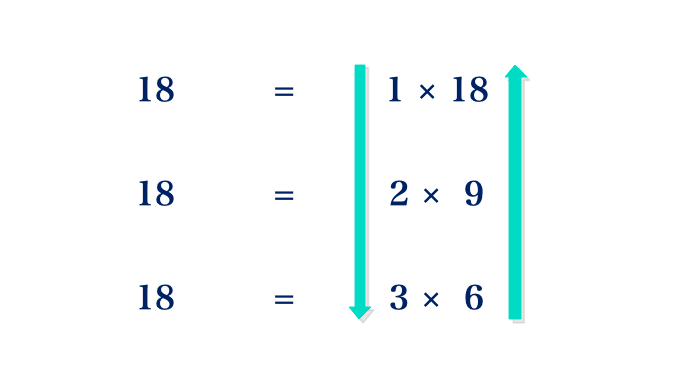
Factors of 18 are 1, 2, 3, 6, 9, 18
Multiples:
A multiple of a whole number is obtained by multiplying it by any whole number e.g.
The multiples of 4 are
4 × 1, 4 × 2, 4 × 3, 4 × 4, 4 × 5, 4 × 6 …..
which are 4, 8, 12, 16, 20, 24, …. etc
Worked Example 1.2.1:
a. Find all the factors of 36
b. State which of these factors are even
c. State which of these factors are odd
Solution
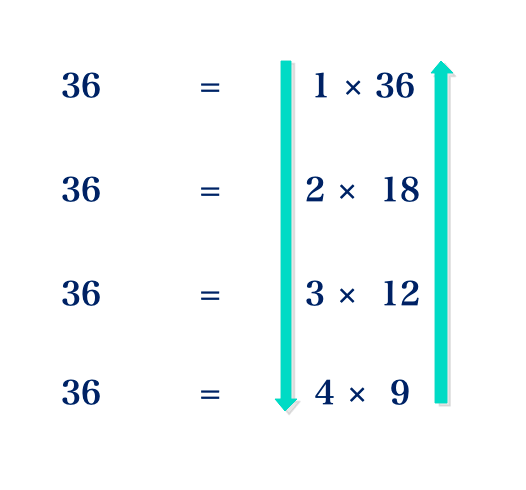
a. Factors of 36 = 1, 2, 3, 4, 9, 12, 18 and 36
b. Even numbers are 2, 4, 12, 18 and 36
c. Odd numbers are 1, 3 and 9
Worked Example 1.2.2:
a. Write the first five multiples of 12
b. Which of them are multiples of 8
Solution:
a. Multiples of 12 are
12 × 1 = 12
12 × 2 = 24
12 × 3 = 36
12 × 4 = 48
12 × 5 = 60
Multiples of 12 are 12, 24, 36, 48 and 60
b. The multiples of 8 in 12, 24, 36, 48 and 60
are 24 and 48
because;
24 = 3 × 8
48 = 8 × 6
Prime Number:
A prime number is a number that can only be divided by 1 and itself. It has only two factors.
Examples are;
2, 3, 5, 7, 11, 13, 17, 19, 23, 29, 31, 37, 41, 43, 47, 53, 59, 61, 67, 71, 73, 83, 89, 91, 97 etc.
Prime factor:
A prime factor is a factor that is also a prime number e.g.
The factors of 20 are 1, 2, 4, 5, 10, and 20.
Out of these the prime factors of 18 are 2 and 5.
Product of Prime factors:
A given number can be expressed as a product of its prime factors. This is achieved by successive or repeated division by prime factors.
Worked Example 1.2.3:
Express the following numbers as a product of their prime factors. Express your answer in index form.
(a) 36
(b) 320
(c) 336
Solution
(a) 36
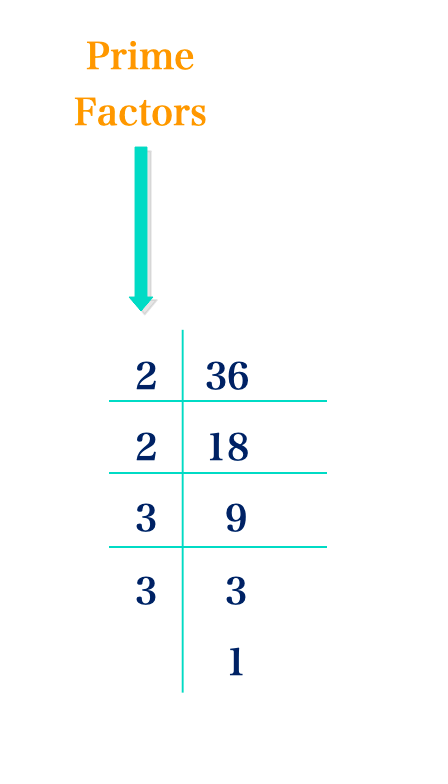
36 = 2 × 2 × 3 × 3 = 22 × 32
(b) 320
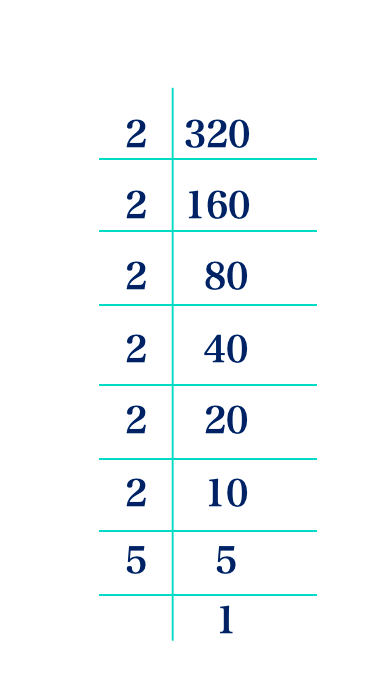
320 = 2 × 2 × 2 × 2 × 2 × 2 × 5 = 26 × 5
(c) 336
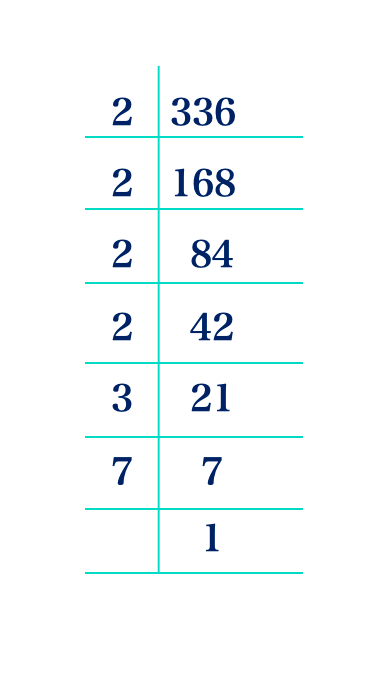
336 = 2 × 2 × 2 × 2 × 3 × 7 = 24 × 3 × 7



Responses